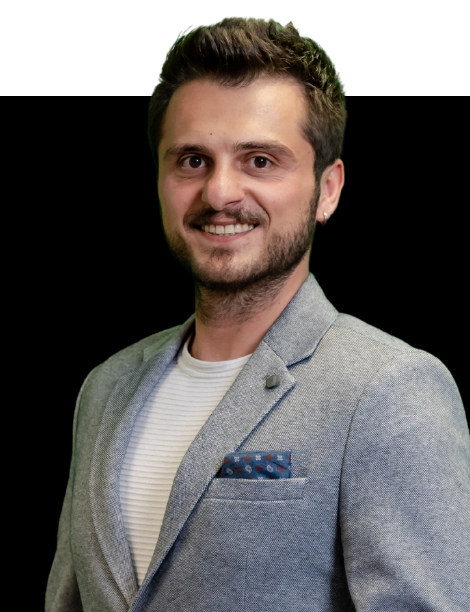let's get you started
SCHEDULE YOUR CALL
We will contact you with Kivanc or one of our consultants, so that you can get more information about the city & program options and find the best fit for your study abroad needs.
How can we help?
Get the support you need from a previous international student
A "Little" note for you...
Hello friends and dear parents,
I am Kıvanç. I was an international student in Canada. I came to Canada 4 years ago, in the midst of COVID. Despite the challenges, I worked very hard, found a job just before completing my studies, and officially started working in an educational technology company right after my graduation. Within the next 3 years, I became the Vice President of Product Development and then the CEO of the company.
Now, I am helping other people in different countries achieve the same success or even better. I am grateful to my family for investing in my future by covering my tuition fees and living expenses 4 years ago. By putting in the effort and working hard, I found a job within the first 12 months and was able to cover my own expenses. In 3 years, I earned 9-10 times the initial investment my family made. Beyond the return on investment, I now have the ability to build a life anywhere in the world without being dependent on the conditions of any one country. If you (students) or your children (parents) want a similar opportunity, I am here to help. I am not saying it is easy, but it is possible.
As someone who has walked this path, I want to help you do the same.
Best regards,
Kıvanç G.
Finding a Temporary Stay
Before you land into Canada, depending your school and preferences, our team will help you find a suitable temporary stay before and during your studies. We will share you the options and will guide through your new home.
Getting an Insurance
Even though you will be covered by your institution (many institutions, not all) during your studies, you might come to Canada a bit earlier than your studies. In this scenario, to be safe, we can help you arrange a insurance which will cover you before your studies start.
Changing Your Stay in Canada
Whenever you want to change your stay in Canada, you can contact our team with your request. First we will assess your situation and the reason that you want to change your stay. Then, by considering all, we will help you finding your next stay.
numbers
Client results
Learn more
Frequently Asked Questions for Canada 🇨🇦
In Canada, colleges and universities both offer post-secondary education but differ in focus and structure. Colleges typically offer more technical and vocational programs, while universities provide more academic and research-oriented programs. Universities also tend to be larger with more students and faculty members.
Admission requirements vary by institution and program, but generally, international students need:
- A high school diploma (or equivalent)
- Proof of English language proficiency (e.g., IELTS or TOEFL)
- Specific academic prerequisites for the chosen program
The application process for international students can take several months. It is advisable to start early, typically around October for programs starting the following September. This allows ample time for application review and visa processing.
A Designated Learning Institution (DLI) is a school approved by a provincial or territorial government to host international students. To obtain a study permit, you must be accepted by a DLI. A list of DLIs can be found on the Immigration, Refugees and Citizenship Canada (IRCC) website.
Yes, international students can work while studying in Canada. They are generally allowed to work up to 20 hours per week during the school year and full-time during scheduled breaks, such as winter and summer holidays. No separate work permit is required, but you will need a Social Insurance Number (SIN).
Learn more
Frequently Asked Questions for Europe 🇪🇺
Recognition of previous education credentials varies by country and institution. It is recommended to contact the International Office of the European university where you wish to study to check if your certificates or degrees will be recognized.
Admission requirements differ by country and institution, but generally include:
- A recognized high school diploma or equivalent
- Proof of language proficiency (usually in English or the local language)
- Specific academic prerequisites for the chosen program
Many European universities offer programs in English, but language requirements depend on the country and institution. Proof of English proficiency (e.g., IELTS or TOEFL) is often required bur some schools accepts through their own entrance exams and interviews withtout asking for a . For programs in other languages, proficiency in that language must be demonstrated.
It is advisable to start planning at least a year in advance. This includes researching programs, preparing necessary documents, and understanding visa requirements. Application deadlines vary, so check with individual institutions for specific dates. However, this does not mean that you cannot begin your studies in the same year. Visa processing times vary from country to country, and we will provide you with up-to-date information on the timelines.
Yes, there are numerous scholarships and funding schemes available across Europe, including the Erasmus+ program and country-specific scholarships. It is advisable to check the specific scholarships offered by the institutions and countries you are interested in.

